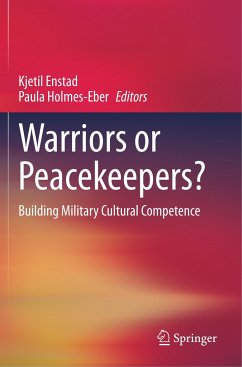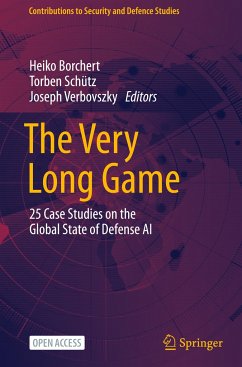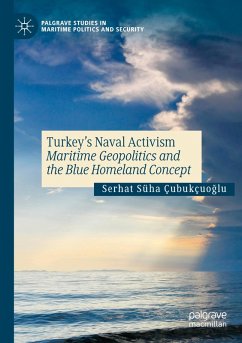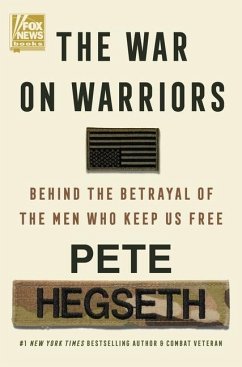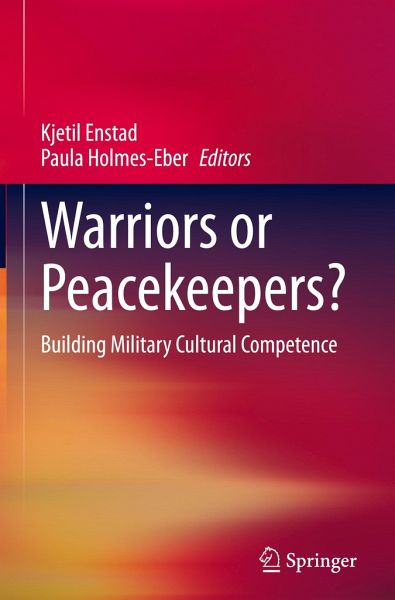
Warriors or Peacekeepers?
Building Military Cultural Competence
Herausgegeben: Enstad, Kjetil; Holmes-Eber, Paula

PAYBACK Punkte
49 °P sammeln!
As the past two decades of war in Afghanistan, Syria, Iraq, Darfur and the Congo have revealed, war in the twenty-first century looks nothing like the traditional state-to-state conflicts of World Wars I and II which defined the previous century. Resolving today's conflicts - typically based on complex ethnic, religious, economic and political dynamics - requires far more than mere military strength and technology. The military officer of today must simultaneously be a warrior and diplomat, combatant and humanitarian worker, soldier and peacekeeper. But how can today's militaries prepare their...
As the past two decades of war in Afghanistan, Syria, Iraq, Darfur and the Congo have revealed, war in the twenty-first century looks nothing like the traditional state-to-state conflicts of World Wars I and II which defined the previous century. Resolving today's conflicts - typically based on complex ethnic, religious, economic and political dynamics - requires far more than mere military strength and technology. The military officer of today must simultaneously be a warrior and diplomat, combatant and humanitarian worker, soldier and peacekeeper. But how can today's militaries prepare their leaders for such multifaceted roles?
Warriors or Peacekeepers seeks to provide answers to this question, comparing and contrasting research on the successes and failures of military cultural education and training programs in seven different countries on three continents (U.S., Canada, Argentina Norway, Denmark, Germany and the Netherlands).
This anthology consists of three main sections. The first addresses the theoretical issues of developing the warrior-peacekeeper: what constitutes cultural competence in the officer profession and the pedagogical challenges associated with developing such competence. The second compares teaching practices from various military educational institutions and provides insight into such issues as: how language training can build cultural awareness, helping officers navigate the ethical and moral challenges of dealing with gender in radically different cultures and the best didactic models to develop reflective skills in military leaders. The third section examines the structural and organizational conditions which historically have aided or impeded educational and organizational change in the military.
This book will appeal to military academic communities, educational institutions, scholars in security studies, peacekeeping and conflict studies; and to decision-makers in governments and administration.
Warriors or Peacekeepers seeks to provide answers to this question, comparing and contrasting research on the successes and failures of military cultural education and training programs in seven different countries on three continents (U.S., Canada, Argentina Norway, Denmark, Germany and the Netherlands).
This anthology consists of three main sections. The first addresses the theoretical issues of developing the warrior-peacekeeper: what constitutes cultural competence in the officer profession and the pedagogical challenges associated with developing such competence. The second compares teaching practices from various military educational institutions and provides insight into such issues as: how language training can build cultural awareness, helping officers navigate the ethical and moral challenges of dealing with gender in radically different cultures and the best didactic models to develop reflective skills in military leaders. The third section examines the structural and organizational conditions which historically have aided or impeded educational and organizational change in the military.
This book will appeal to military academic communities, educational institutions, scholars in security studies, peacekeeping and conflict studies; and to decision-makers in governments and administration.



